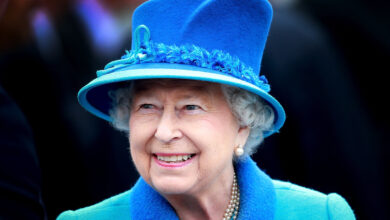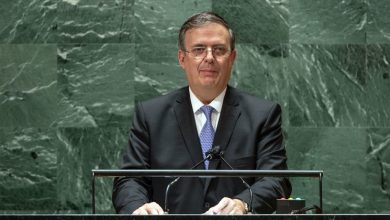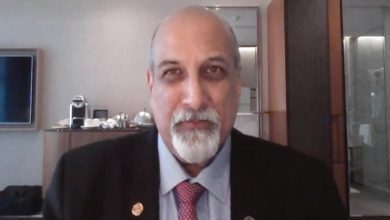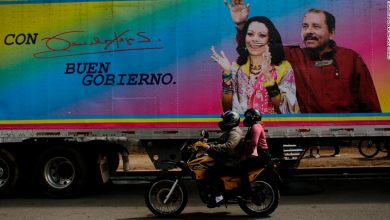NPR investigates #MeToo allegations under Eric Garcetti : NPR
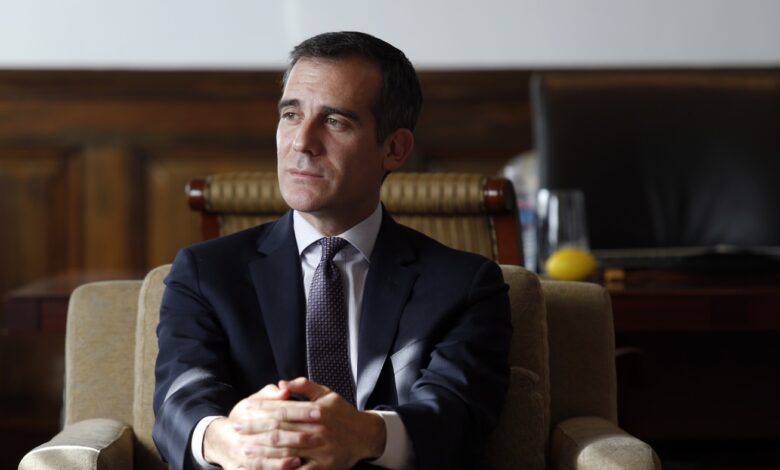

Eric Garcetti, then the mayor of Los Angeles, during an interview in his office at City Hall in Los Angeles on Jan. 13, 2015.
Patrick T. Fallon/Bloomberg via Getty Images
hide caption
toggle caption
Patrick T. Fallon/Bloomberg via Getty Images
Editor’s note: This story includes descriptions of sexual harassment and racist language.
In June 2017, Eric Garcetti gathered with a group of his staffers, advisers and lobbyists on a hotel rooftop in Miami Beach, Florida.
At the time, Garcetti was a rising star in the Democratic Party. He had just been reelected mayor of Los Angeles, the second-biggest city in the U.S., and he was actively laying the foundation for a potential presidential campaign.
Garcetti’s staff was in Miami Beach for a meeting of the U.S. Conference of Mayors. On the final night of the conference, with the sunset fading over the hotel pool, the group posed for pictures.
One of those photos would go on to haunt Garcetti’s political career, from his time as mayor of Los Angeles to his current post as U.S. ambassador to India.
In the middle of the photo, Garcetti is smiling, giving two thumbs-ups.
Garcetti is flanked by people he knew well: a pair of lobbyists, a business executive and a city official.
On the left is one of Garcetti’s closest political allies at the time, a man named Rick Jacobs. Jacobs is a powerful and well-connected figure in LA politics and was part of Garcetti’s inner circle. He had been a political consultant, fundraiser, deputy chief of staff, trusted adviser and friend to Garcetti for years.
In the photo, Jacobs is standing just a couple of feet from Garcetti, posing with his outstretched hand placed deliberately in front of a lobbyist’s crotch.
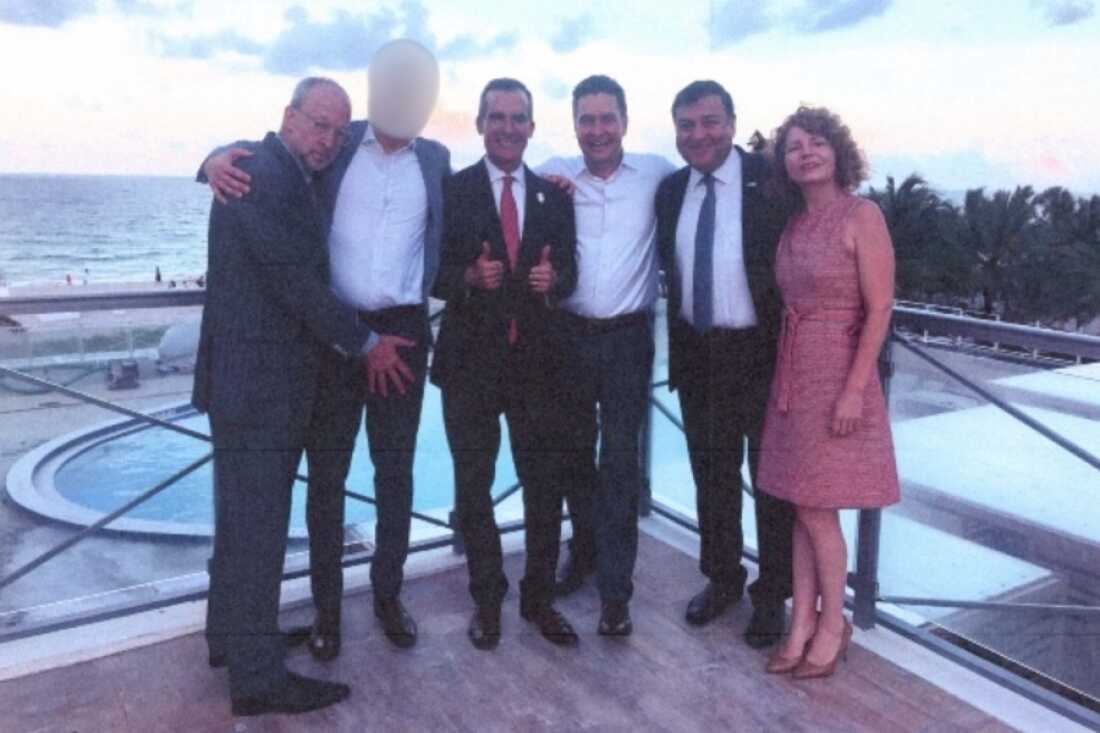
Garcetti (center with his thumbs up) poses for a photo with staffers, advisers and lobbyists on a hotel rooftop in Miami Beach, Florida.
Photo obtained via California Public Records Act request
hide caption
toggle caption
Photo obtained via California Public Records Act request
That lobbyist would later testify that he found the situation upsetting and embarrassing.
“I thought Rick Jacobs should be ashamed,” he said. (NPR is not naming him as a victim of sexual misconduct.)
For years, the photo circulated among Garcetti’s City Hall staff, the kind of photo that people gossiped about and showed at after-work happy hours.
For some, the photo of Garcetti, with his eyes looking toward the camera, functioned as a kind of visual metaphor.
When the photo was taken on that hotel rooftop, Garcetti said, he was looking the other way.
Just a few years later, in 2020, an LAPD officer on Garcetti’s protective detail sued the city of Los Angeles and alleged that Jacobs sexually harassed him over the course of 2014 to 2019 and that Garcetti witnessed the behavior and failed to act. That lawsuit led to the release of the photo, along with a cascade of accusations from people in and around the Garcetti administration.
Multiple city employees testified in depositions that Jacobs subjected them to unwanted massages and hugs, crude sexual comments and racist language without facing any consequences.
Jacobs denied all wrongdoing, calling the allegations against him “pure fiction.” Under oath, Jacobs denied sexually harassing anyone. He admitted, however, that he referred to his Asian American assistant at City Hall as a “Chinaman.” He acknowledged that he posed for the photo next to Garcetti as part of a “really stupid joke.” Asked whether he made “comments of a sexual nature” in front of Garcetti, Jacobs testified it was “possible.”
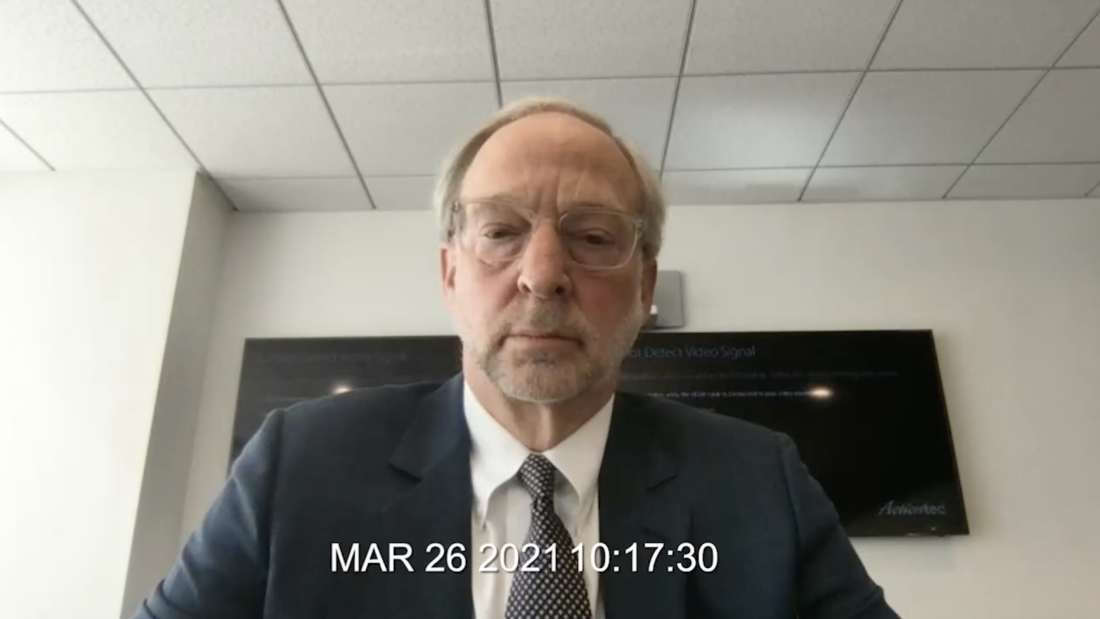
A screenshot of Rick Jacobs testifying at his videotaped deposition.
Matthew Garza v. City of Los Angeles
hide caption
toggle caption
Matthew Garza v. City of Los Angeles
Garcetti said he never saw inappropriate behavior from Jacobs, in public or private, at any time. He testified he could not even recall Jacobs telling a joke, let alone an off-color comment.
After the lawsuit was filed, Garcetti initially stood by Jacobs and said they would continue to work together while a city-commissioned sexual harassment investigation was ongoing.
“Fundamentally, this is something that should take a process forward, but shouldn’t keep somebody who has been a committed public servant from being able to serve our community and our world,” Garcetti told reporters in July 2020. Garcetti stopped working with Jacobs months later, when additional accusations became public.
Despite the allegations, Garcetti fought to keep his political career on track while maintaining that he was completely unaware of any inappropriate behavior. Ultimately, he narrowly won confirmation in the U.S. Senate as ambassador to India amid questions about what he knew about the harassment allegations and when.

Vice President Harris shakes hands with Eric Garcetti, the U.S. ambassador to India, during his swearing-in ceremony in Washington, D.C., on March 24, 2023.
Andrew Harrer/Bloomberg via Getty Images
hide caption
toggle caption
Andrew Harrer/Bloomberg via Getty Images
Months after Garcetti was sworn in, city leaders approved a $1.8 million settlement to resolve the lawsuit.
Like most settlements, this one did not include any admission of wrongdoing.
Garcetti told NPR, “I was surprised by the settlement. I wish it had gone to trial.”
Dueling investigative reports — one commissioned by the city of Los Angeles and the other by Senate Republicans — came to opposite conclusions. As a result, the truth of LAPD officer Matthew Garza’s allegations remains legally unresolved.
The closure of the case allowed NPR to use the California Public Records Act to obtain more than a thousand pages of unredacted transcripts of depositions of Garcetti’s inner circle.
NPR has also obtained, and is publishing for the first time, excerpts of the video of Garcetti’s deposition, showing his body language, facial expressions and demeanor as he responds to tough questions about the harassment allegations.
Rick Jacobs, a former top adviser to U.S. Ambassador to India Eric Garcetti, testified that he may have commented on LAPD officer Matthew Garza’s appearance by saying, “You look so good,” or by noting that Garza was “in good shape.” LAPD officer Derrick Boykins testified that Jacobs generally made “a lot of comments” about police officers’ looks. In his deposition, Garcetti appears to scoff at the suggestion that Jacobs said to Garza that his muscles were “so tight.”
The evidence includes new allegations of workplace misconduct and retaliation against those who spoke out against Jacobs and Garcetti. In total, the records raise concern about Garcetti’s truthfulness, as well as the Biden-Harris administration’s decision to fully support Garcetti’s nomination as ambassador to India. NPR’s investigation also reveals the tension at the heart of a Democratic political scandal in the #MeToo era, between political ambition and a commitment to addressing sexual harassment.
The White House declined to answer NPR’s questions for this story.
Jacobs also did not respond to emails and text messages seeking comment. When an NPR journalist reached Jacobs by phone and identified himself as a reporter, Jacobs responded, “Oh,” and immediately ended the call.
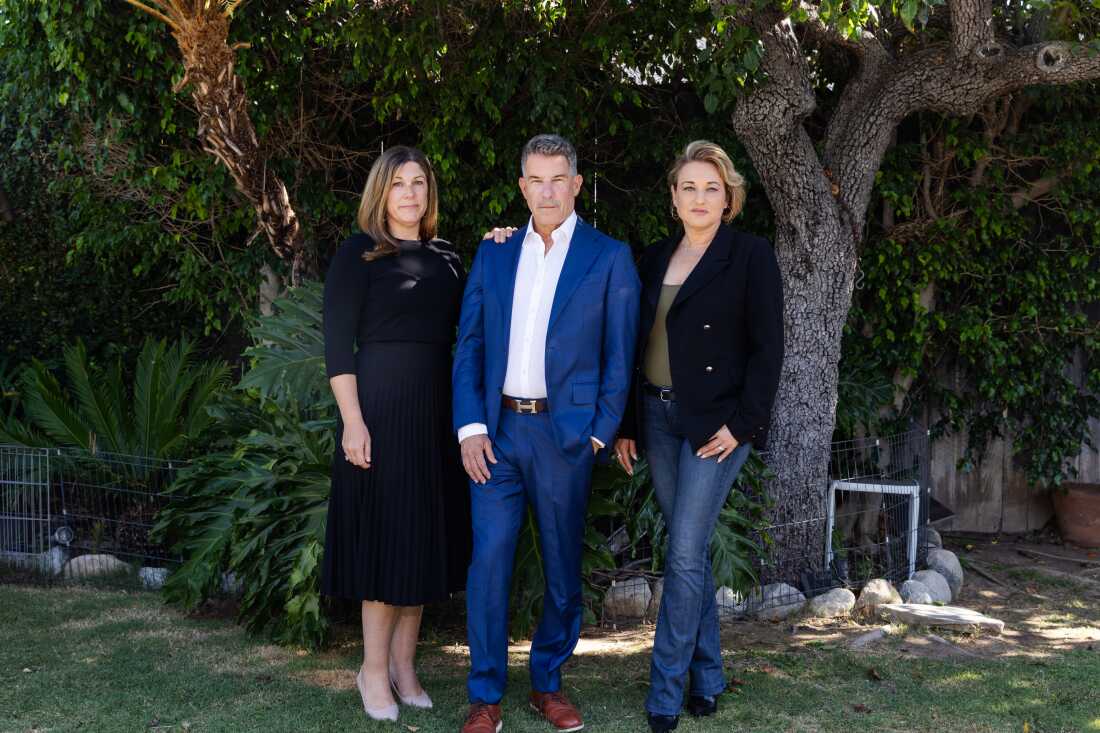
Suzi Emmerling (left), Jeremy Bernard and Naomi Seligman, who all previously worked under then-Mayor Eric Garcetti in Los Angeles, have come forward and called into question whether he lied under oath.
Jessica Pons for NPR
hide caption
toggle caption
Jessica Pons for NPR
Multiple former members of the Garcetti administration say that the evidence refutes Garcetti’s consistent denials.
“To watch him lie like that is such a betrayal,” said Naomi Seligman, who served as Garcetti’s communications director from 2015 to 2017 and who has accused Garcetti of committing perjury.
“There are a lot of lives and people he left behind him that have been hurt, because of his inability to own his responsibility in this situation,” said Suzi Emmerling, who served as Garcetti’s communications director from 2017 to 2019.
Here are four key takeaways from NPR’s investigation:
1. Concerns about Jacobs’ alleged misconduct at work spanned more than a decade
By the time LAPD officer Garza went public with sexual harassment allegations against Jacobs in July 2020, Garcetti and Jacobs had been friends for nearly two decades. In a 2016 email, Garcetti called Jacobs “a dear friend, as well as one of my most trusted advisors.”
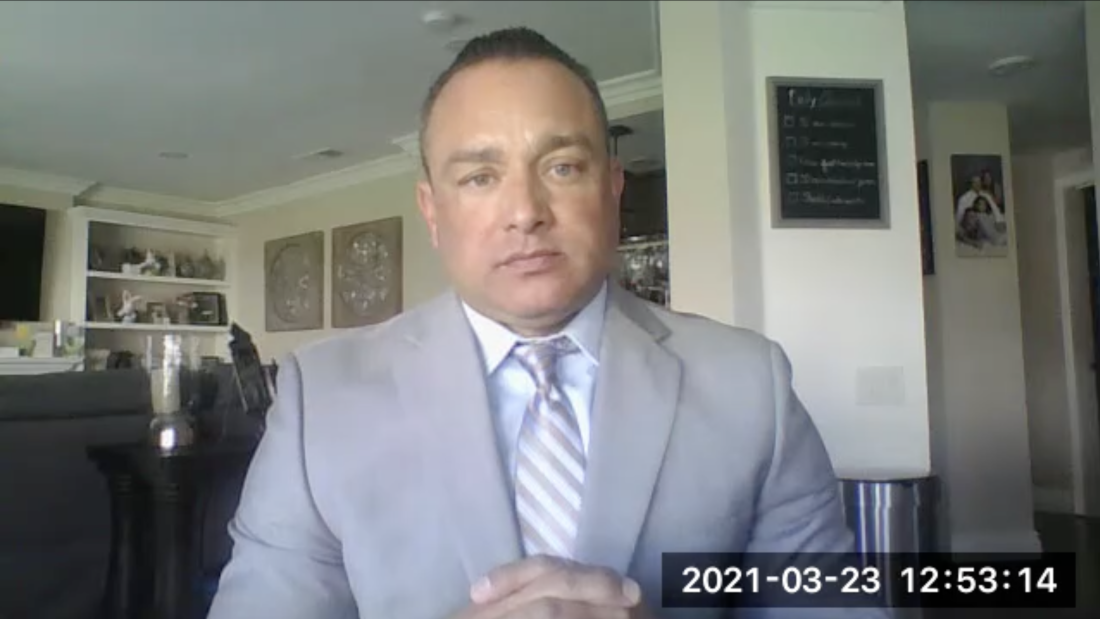
A screenshot of LAPD officer Matthew Garza testifying against Rick Jacobs.
Matthew Garza v. City of Los Angeles
hide caption
toggle caption
Matthew Garza v. City of Los Angeles
Throughout much of that time, people who knew and worked for Jacobs had concerns about his conduct, according to deposition testimony. Multiple employees testified that such concerns were widely known.
Jacobs met Garcetti in 2003, when Jacobs was working on former Vermont Gov. Howard Dean’s presidential campaign, and Garcetti endorsed Dean. Garcetti’s wife, Amy Wakeland, also worked on the campaign and was also friends with Jacobs.
In politics, Jacobs was known as a formidable, and even ruthless, fundraiser. After Dean’s campaign ended, Jacobs created a liberal group called the Courage Campaign, which is best known for its advocacy in support of same-sex marriage. Jacobs is gay.
The organization was small. Jacobs, who led the organization from 2005 to 2013, estimated in his deposition testimony that it had roughly eight employees at any given time.
NPR spoke to six former employees of the group. These former employees asked to speak anonymously, because they said they fear retaliation from Jacobs, who is still influential in LA politics as a consultant and lobbyist.
In interviews, these former employees said that Jacobs frequently made crude sexual comments at work and that he frequently hugged, squeezed and kissed the employees he managed.
“I haven’t seen any other leader I’ve worked for have that level of physical contact in the workplace,” said one former employee.
Another former employee, a gay man, said that Jacobs forcibly kissed him on the lips, touched and “aggressively” hugged him without his consent, and subjected him to “lewd and sexually graphic comments,” according to a summary of his complaint later provided to investigators for the city.
The organization was virtual and did not have a formal office. As a result, former employees said, work meetings often took place at Jacobs’ home and sometimes over alcoholic drinks, blurring the line between personal and professional. Evening fundraisers, which also frequently involved alcohol, made those lines even fuzzier. Jeremy Bernard, who did not work for the Courage Campaign but knew Jacobs socially during that time, agreed that Jacobs could be “handsy” and “aggressive” when drinking alcohol, according to his testimony.
In his deposition, Jacobs denied ever sexually harassing any employee of the Courage Campaign.
When asked whether he had kissed an employee without his consent, Jacobs replied, “I don’t recall doing so. Not without his consent.”
Jacobs is no longer formally associated with the Courage Campaign, which renamed itself Courage California and is now led by Executive Director Irene Kao.
NPR contacted Kao for comment about the former employees’ allegations.
“The allegations you shared happened some time ago, so I don’t think it would serve any purpose to send them to me at this time,” Kao wrote in an email. “Any allegations of any kind of discrimination or harassment is taken very seriously by Courage California, and we believe all parties should be afforded a just legal process.”
Kao declined to comment on Jacobs’ role with the organization, citing concerns about privacy.
During that same era, before Jacobs was hired at City Hall in 2013, Yashar Ali, a freelance journalist and former political fundraiser, said that Jacobs grabbed his face with two hands, forcibly kissed him on the lips at a party and said, “God your lips are so soft.” Ali, who is gay, said the kisses were not consensual and made him uncomfortable. He said he did not push Jacobs away.
“And once he did that, and I didn’t object to it, he continued,” Ali told NPR in an interview. “But not objecting to something is not consent. It’s just not objecting.” He estimates that Jacobs kissed him about a dozen times over the years and that Garcetti was sometimes present at these parties.
Jacobs spoke about this allegation with investigators for the city. “In Mr. Jacobs’ experience growing up and as a gay man, kissing on the mouth was a common way to greet others,” the investigators wrote in their report. Jacobs said that he believed the kisses with Ali were consensual and part of a “cutesy little game.” Ali told NPR that Jacobs’ statement was “absurd” and false.
NPR spoke to multiple sources who said that Ali’s story is consistent with their own experience and that Jacobs was widely known to touch people at parties in ways that made them uncomfortable. The Los Angeles Times and New York magazine both reported additional accounts of men who said Jacobs groped them at parties.
Garcetti’s own description of Jacobs’ behavior at parties has changed over time.
In his deposition, Garcetti testified, “I have no memory of ever meeting” Ali. But he said he witnessed Jacobs kissing people on the lips as a greeting in social environments.
“I think he might have been receiving it as much as somebody giving it,” Garcetti testified.
In an email to NPR, Garcetti said, “I don’t recall ever seeing Rick Jacobs kiss anybody, aside from social kisses on the cheek to say hello.” But when asked in his deposition whether he saw Jacobs kiss people on the lips whom “he was not close to,” Garcetti answered “yes” almost immediately.
In an interview with city investigators, Garcetti said the contact he witnessed was appropriate, because Jacobs is gay and Jewish and, as Garcetti put it, Jews are an affectionate “hugging kind of people.”
But in his response to NPR’s questions for this story, Garcetti had a different answer.
“I don’t recall ever seeing Rick Jacobs kiss anybody, aside from social kisses on the cheek to say hello,” Garcetti wrote in an email.
NPR sought clarification of Garcetti’s answer, given that he had previously testified seeing Jacobs kiss people on the lips.
“There’s no contradiction,” Garcetti wrote in a follow-up email. “I only ever saw Rick kiss others during the normal course of social greetings, and I never witnessed any inappropriate behavior. I’ve given this testimony consistently.”
2. At LA City Hall, allegations of unwanted massages, kisses, sexual innuendo and racist comments
When Garcetti began running for LA mayor in 2013, Jacobs raised more than $2 million to support Garcetti’s campaign and attack his opponent.
Shortly thereafter, Garcetti hired Jacobs as his deputy chief of staff and gave him a special title, “executive vice mayor.” Together, Garcetti and Jacobs helped create a nonprofit called the Mayor’s Fund for Los Angeles. The organization raises private, tax-deductible donations from individuals, corporations and charities to help pay for initiatives in the city. Since its founding, the organization has faced questions about whether corporations, wealthy donors and even the government of Qatar, which is known for censorship and repression, were using contributions to win favor with Garcetti. And while the Mayor’s Fund is technically independent from the city government, it had an office at LA City Hall. (After Karen Bass became LA mayor, the organization moved its office out of City Hall and embraced new ethics guidelines regarding donations.)
In addition to the Mayor’s Fund, Jacobs also worked with Garcetti to create a nonprofit called Accelerator for America, which helped boost Garcetti’s presidential ambitions, as well as a political action committee called the Democratic Midterm Victory Fund, which raised money from big donors in Hollywood and business. Among the PAC’s donors were the tech billionaires Elon Musk and David Sacks.
“Rick Jacobs brought Eric Garcetti to the ball,” said Seligman, the former Garcetti communications director. “Rick Jacobs introduced him to the biggest donors he has. Rick Jacobs was his ticket.”
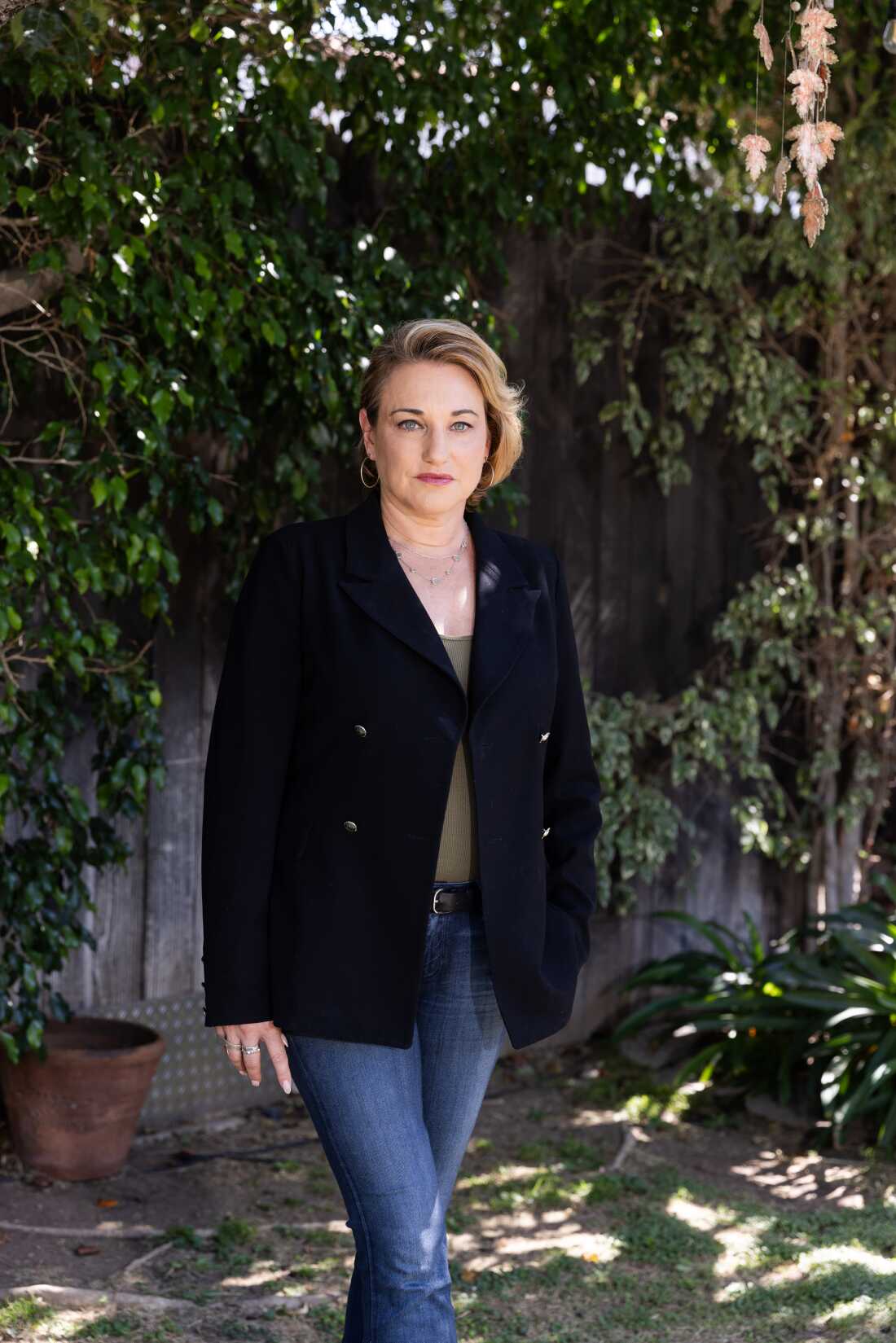
Naomi Seligman, who was Garcetti’s communications director from 2015 to 2017, has come forward to say she believes he lied under oath.
Jessica Pons for NPR
hide caption
toggle caption
Jessica Pons for NPR
In Garcetti’s world, Jacobs “had more power than any other adviser,” said Emmerling, the other former Garcetti communications director.
In a 2019 email to some of his top advisers, Garcetti wrote, “I have led a new culture at City Hall that has been recognized as the best in the country.”
Behind the scenes, the picture was much darker, and often beset by internal rivalries.
Jacobs himself told city investigators that City Hall was an environment of “literal hatred.”
Five city employees testified that Jacobs subjected them to unwanted, inappropriate or otherwise discomfiting physical contact at work, including a forcible kiss, massages, squeezes and tight hugs.
Other City Hall employees testified that they witnessed physical contact between Jacobs and other employees. Former Chief of Staff Ana Guerrero, who remains close to Garcetti, told city investigators that Jacobs used hugs to “assert his dominance” with lower-level employees, though she did not describe the contact as sexual harassment. A former press secretary for Garcetti testified that Jacobs sexually harassed her fiancé at a dinner party.
Julie Ciardullo, then chief legal counsel in the mayor’s office, testified about an incident that she said Garcetti personally witnessed, in which Jacobs allegedly cornered her in a cramped elevator and pushed against her body, joking about the “tight fit.” He was “joking around” and “invading my personal space,” even after she told him to “cut it out,” Ciardullo testified. Jacobs stopped only after Garcetti intervened, she said. Ciardullo said that she did not consider the incident sexual harassment. Garcetti’s spokesperson told the LA Times that he did not remember the incident, but Ciardullo’s “description is consistent with how [Garcetti] would handle any situation where he witnesses someone behaving unprofessionally.”
Multiple witnesses testified that Jacobs regularly made sexual comments and jokes to employees.
In addition to Jacobs’ racist reference to his Asian American assistant — which three witnesses testified to — investigators for Senate Republicans reported that Jacobs used the term “yellow people” to describe participants at a U.S.-China summit. Paul Kadzielski, a former digital director in the Garcetti administration, testified that “occasionally [Jacobs] would make jokes of a racial nature that would make me uncomfortable.”
The testimony and other evidence in the case suggest that concern about Jacobs’ workplace behavior was widely known.
“My impression was that Rick’s behavior was common knowledge among people who were my superiors,” testified Anna Bahr, a former Garcetti press secretary, “and my expectation of any repercussions for him was zero.”
Emmerling told NPR that Jacobs was seen as “beyond untouchable,” so people were reluctant to speak out. “Everyone would just say, ‘Well, he’s always gonna win. You’re never gonna push back against him or any of his behavior and prevail. So you truly don’t have a choice but to just accept it,’” Emmerling said.
Garcetti testified — and reiterated to NPR — that he never witnessed any inappropriate behavior of any kind from Jacobs.
“As someone who has spent years advocating for victims of sexual harassment, I was deeply saddened to learn about these allegations during the course of the litigation,” Garcetti told NPR in an email. “What frustrates me most is that I was only made aware of these allegations years later, in [a] lawsuit and through the press during a campaign to damage my political career. I wish these individuals — and their supervisors — had come forward while this behavior was allegedly taking place. Had that happened, I would have taken immediate action to stop it.”
Testimony by top members of Garcetti’s administration indicates that concerns about Jacobs’ workplace behavior were widespread and a common topic of discussion in and around City Hall. Garcetti testified that he was personally shocked when he heard that a member of his LAPD protective detail, who was privy to sensitive and private conversations, was planning to file a lawsuit.
3. A hush agreement kept an allegation of workplace misconduct and retaliation secret
One revelation from the records obtained by NPR is that the sexual harassment lawsuit against the city of Los Angeles was not the first time Jacobs faced a formal claim of workplace misconduct.
Because of a confidentiality agreement, the details of the accusation were hidden from the public. NPR is reporting them now for the first time.
While at City Hall, Jacobs served as the board treasurer of the Mayor’s Fund and also as a kind of liaison between the fund and Garcetti. After he left his city position, Garcetti wrote in an email that Jacobs “will continue to keep me apprised of and engaged in the excellent work the Fund is doing.”
In 2018, Jeremy Bernard, a former social secretary in the Obama White House, took on the role of CEO of the Mayor’s Fund. Bernard had been a close friend of Jacobs. But that relationship changed when Bernard became alarmed by Jacobs’ treatment of Mayor’s Fund employees.
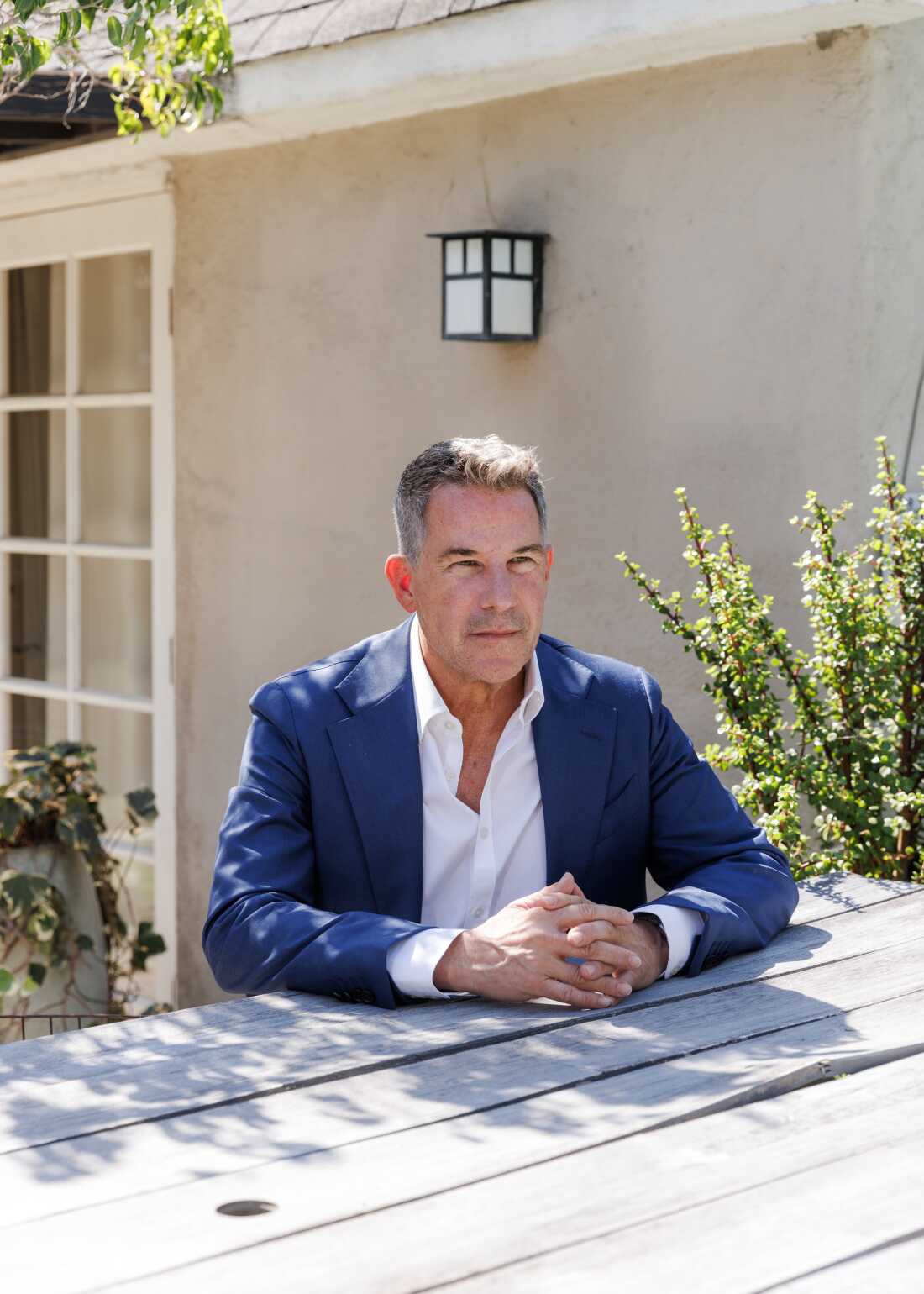
Jeremy Bernard, the former CEO of the Mayor’s Fund for Los Angeles, said he found part of Garcetti’s testimony “hard to believe.”
Jessica Pons for NPR
hide caption
toggle caption
Jessica Pons for NPR
Bernard testified that Jacobs “could be quite rude” to female employees and treated them poorly in comparison with male employees.
According to testimony from the case obtained by NPR, this was not an isolated concern for women in and around the Garcetti administration. Multiple people who worked in and around City Hall said under oath that Jacobs bullied and abused female colleagues.
Jacobs was “mean spirited and condescending,” was “very disrespectful and very demeaning” and “created a hostile work environment,” testified one senior adviser to Garcetti. He was “dismissive of women in general” and was “generally disliked among women at City Hall,” said a fundraiser for Garcetti. “He was belittling, demeaning, at times, cruel,” said a former press secretary for Garcetti. He was “short-tempered, very snappy and snide,” testified one former administration official. He was “controlling” and “made my life more difficult,” said another former official.
Bernard testified that he reported concerns about Jacobs’ treatment of female employees to the chair of the board of the Mayor’s Fund, Kathleen Brown, in April 2020. (Brown is a former California state treasurer, and her father, Pat Brown, and her brother, Jerry Brown, both served as governor of the state.)
A few days later, Bernard participated in a conference call with Brown and Jacobs. On that call, Bernard said, he was fired.
Bernard testified that he was “shocked and dismayed” by what took place and that he believes his firing was an act of retaliation for reporting workplace misconduct.
“Did you form an impression that Rick Jacobs retaliates against people that complain about him?” Bernard was asked in his deposition.
“Yeah. I think that is a fair assumption,” he replied.
There’s a reason this complaint has not been publicly reported before.
Bernard and Jacobs were bound by a “bilateral confidentiality” agreement surrounding the circumstances of Bernard’s firing, deposition testimony indicates. Bernard declined to comment to NPR in any way about the circumstances of his departure from the organization.
An attorney representing the Mayor’s Fund for Los Angeles, Lisa Von Eschen, told NPR in an email, “It is the policy of the Mayor’s Fund for Los Angeles not to comment on personnel matters,” and said that because of changes in the board membership, no current board members were involved in the decision. She did not answer a question about whether the organization still intends to enforce any confidentiality agreement about Bernard’s dismissal.
Brown, the former board chair, did not respond to multiple messages from NPR seeking comment.
Bernard testified that “I assume [Garcetti] knows” about the reason for his firing, but he was not certain.
Garcetti told NPR that he was not involved in personnel decisions of the Mayor’s Fund and was not aware of the circumstances of Bernard’s exit.
“Aside from one instance of a colleague complaining that Rick had taken credit for their work, and Rick calling that person territorial — a professional conflict which I helped resolve — no complaints about Rick were ever raised with me,” Garcetti told NPR. “As I’ve said too many times to count over the years — if anyone had ever made me aware of any inappropriate behavior, I would have acted to stop it.”
4. Multiple allegations that Garcetti lied under oath
Two eyewitnesses testified that they heard Garcetti personally express concern about Jacobs’ behavior before the lawsuit made allegations of misconduct public.
“The mayor and his wife had a conversation in the car about Rick Jacobs’ inappropriate behavior,” testified LAPD officer Matthew Garza, who often drove with Garcetti around the city. “I believe they used the wording that it was going to eventually ‘bite them in the ass.’”
Garcetti and his wife testified that they did not have this conversation.
Bernard, the former CEO of the Mayor’s Fund for Los Angeles, testified that Garcetti told him something to the effect of, “I can’t believe Rick worked out at City Hall and that we got through it without a lawsuit.”
“I have never said that to anybody, publicly or privately,” Garcetti testified in his own deposition.
“And were you ever concerned that while Rick Jacobs worked at City Hall, that he might cause a lawsuit somehow?” asked Greg Smith, the attorney for Garza.
“No, I was not,” Garcetti replied.
Garza testified that Garcetti privately expressed concern about Jacobs’ behavior. Jeremy Bernard, a former CEO of the Mayor’s Fund for Los Angeles, testified that Garcetti made a comment about the possibility of Jacobs’ conduct causing a lawsuit. Under oath, Garcetti quickly and emphatically denied ever making either comment.
NPR showed Garcetti’s testimony to Bernard.
“I’m surprised that he denied it. I heard it. And I heard him say it numerous times,” he said. “I find it hard to believe that he doesn’t remember it.”
Garcetti told NPR that he stands by his testimony.
He was also asked in his deposition whether he could recall Jacobs telling jokes at work.
When asked in his deposition whether he made “jokes of a sexual nature” in front of Garcetti’s LAPD protective detail, Jacobs replied, “Oh, it is possible.”
“Have you ever done it in front of the mayor as well?” Smith asked Jacobs.
“I don’t recall,” Jacobs responded.
Garcetti was more definitive.
“I can recall him laughing at jokes, but I can’t recall him telling a joke,” Garcetti testified.
“Did he ever tell any jokes dealing with men’s body parts that you recall?” Smith asked Garcetti.
“In my presence, no,” he replied.
“And you would have never laughed at — never laughed at anything. If you never heard it, you never laughed, right?” Smith added.
“I would’ve — not only did I not laugh, I did not hear it, I did not laugh. Had I heard it, I would not have laughed, and I would’ve taken action,” said Garcetti.
Testimony from multiple City Hall employees indicates that Jacobs made crude sexual and racist jokes in the workplace and generally had a reputation for having a large and brash personality. When Garcetti was asked in his deposition whether Jacobs frequently made jokes, he replied haltingly that he could only recall Jacobs “laughing at jokes, but I can’t recall him telling a joke.”
Emmerling told NPR that in her position as communications director, she attended a meeting with both Garcetti and Jacobs in which Jacobs made a joke “about snorting cocaine off of a man’s penis.”
“I think we all laughed,” Emmerling said, including Garcetti.
Garcetti denied Emmerling’s account to NPR.

Suzi Emmerling, who was Garcetti’s communications director from 2017 to 2019, has come forward to say she believes he lied under oath.
Jessica Pons for NPR
hide caption
toggle caption
Jessica Pons for NPR
“Absolutely not. This didn’t happen,” Garcetti wrote in his email to NPR. “I can say with certainty that I would remember a grotesque joke like that, and there’s simply no world in which I would allow that kind of a comment in a professional setting.”
Garcetti maintains that he honestly addressed all questions about the harassment allegations. He told NPR that any criticism that he failed to properly respond to harassment allegations as LA mayor was “silly.”
“I have personally supported victims of harassment my entire life and will continue to do so until the day I die,” Garcetti told NPR in an email. “I have been very honest even as this touched my own office that every one who has made an accusation deserves to be heard and investigated. What I cannot do is lie about my experience — what I have witnessed, what I have heard, what I have known.”
Emmerling told NPR that she “absolutely” believes Garcetti is lying.
“Once you tell your first lie, then you’re dug in,” she said. “And he has no choice now but to continue lying.”
Barrie Hardymon edited this story, and Monika Evstatieva produced it. Research from Barbara Van Woerkom, with art direction and photo editing by Virginia Lozano and graphic by Juweek Adolphe. Copy editing by Preeti Aroon with help from Desiree Hicks. Audience engagement support from Danielle Nett and Ameera Butt.


